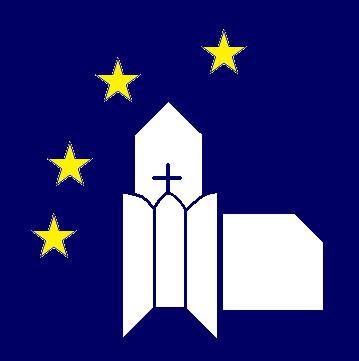LAICIST*/SECULARIST QUESTIONS FOR REFLECTION
(*I (the translator) define a Laicist State as one which allows freedom of expression for all religious and non religious beliefs provided they defend the common good and do not infringe on the Human Rights of other believers)
Introduction
Although we have been discussing the major issues of Laicity in Cristianas y Cristianos de Base de Madrid (CCBM), our committee senses, by the comments we receive, that there are still a lot of things to clarify and quite a few analyses to fine tune to reach a broad consensus amongst us.
And since in our communities we have reached an adequate level of human and christian maturity, we have considered useful to send you a series of questions that can possibly assist your personal and group reflection on different aspects of Laicity and its relationship with our own experience of the christian faith in the XXIst Century.
This is not a survey nor a mandatory work outline. It is just an invitation for a reflection that each community can freely accept or not, only if it is considered desirable.
In order to avoid a dispersion of ideas, we will send you every fortnight some of these questions – grouped by subject – that form part of a questionnaire of about twenty queries.
You can send your useful contributions by email to the Laicity Committee of CCBM:
A THOUSAND THANKS
Laicity Committee, October 2016
(The questions are grouped under 6 headings and were sent out section by section but here they are altogether. Note that several of these questions are very specific to the situation in Spain but in your country you probably have similar types of situations)
Section 1
1. Would you say that being a laicist is the same as being an atheist, an anticlerical or an agnostic?
2. Are you convinced that Laicity is a challenge for christians of today that opt for a church and a society built on principles of equality, democracy and freedom of conscience?
3. Would you say that the (Catholic) Church-(Spanish) State Agreements are the anchor point for the interference of the Catholic Church in the public sphere and a legal basis to maintain privileges that in a democracy should be abolished? Are you in favour of the complete repeal of these Agreements or only for their tailoring to the constitutional framework of 1978.
4. Have you asked yourself why the Catholic Church has still not signed the Universal Declaration of Human Rights as 192 countries have done?
Section 2
5. Would you agree that the Pope must continue to be an absolute monarch as defined by Canon Law? And that the Vatican must continue to be a State?
6. Would you agree that the sole valid interpretation of the Gospels is the Magisterium of the Catholic Church and that we should always obey its authority?
7. Do you think that when it comes to obedience the ecclesiastical authority has more weight than rational arguments?
Sections 3-4
8. Would you agree that Jesus's project, more than being a religious project, is an ethical project for caring for the excluded, the victims of an unjust social order?
9. Would you agree that the sacraments have preference, in other words, that you must give priority to going to Mass instead of participating in a demonstration about public health services? Or that we are citizens first and believers second and that the centre of our faith is not God but people, the population, suffering humanity?
10. Would you agree that what God expects of us is NOT our praise and adoration but attention to the most needy?
11. Would you go so far to day that in Christianity there are no sacred or consecrated persons requiring respect and deferential treatment?
Section 5: Laicist Schools
14. Do you think the State School syllabus should include the subject of Religion or do you share the principle that Religion should be explained outside School?
15. The universal rights to education and freedom of conscience are an integral part of Human Rights. Do you think that these rights are respected in the educational framework, on a level playing field, when the (Spanish) public authorities support and finance both State schools and private subsidised educational establishments?
16. Since the majority of the Spanish subsidised private centres belong to the Catholic Church via its different institutions, should christians accept and justify this so-called “complementary public service”, or denounce this growing privatisation process and demand that the State and the Catholic Church grant priority to the State School system at all its levels?
Section 6: Women and the Catholic Church
17. Do you not think it is, to say the least, shocking that cardinals, bishops and clerics are the people who counsel women on how to behave morally in matters so specific as partner relationships and everything related to motherhood or sex? Where and when did they acquire this wisdom?
18. Would you say that feminist theories that search for an effective liberation of women are nothing more than “gender ideology”, as affirmed by our (Spanish) bishops.
19. There are feminist standpoints that, in a framework of equality of treatment and rights, demand a priesthood of women in the Catholic Church. But if, to paraphrase Pikaza, “we are all priests by the mere fact of being baptised” is there any sense of liberation in this demand? Can we not say it is the same thing as this attempt by the Vatican to introduce “deaconesses”?
Translated by Hugo Castelli Eyre, 15th April 2017
